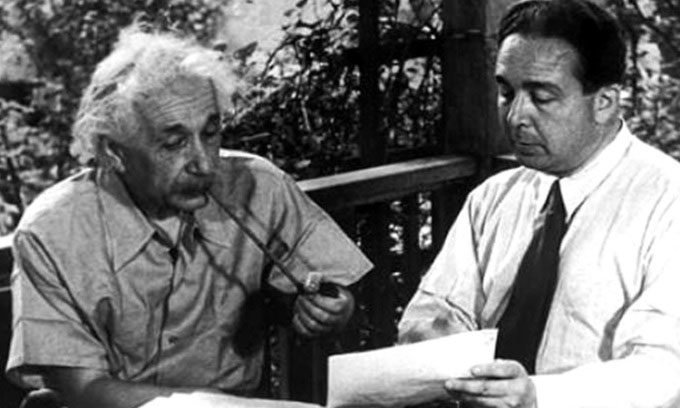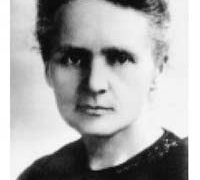The famous physicist who wrote to the U.S. President to warn about the atomic bomb during World War II and was haunted by its consequences.
Albert Einstein is perhaps best known for his equation E=mc², which reflects the relationship between mass and energy, laying the groundwork for nuclear energy and atomic weapons, according to National Geographic. His role in nuclear warfare might have ended there if it weren’t for a simple refrigerator.

Einstein (left) and Leo Szilárd collaborated on research. (Photo: UC San Diego Library)
In the 1920s, while living in Berlin, the physicist collaborated with his Hungarian assistant Leo Szilárd to develop and patent an energy-efficient refrigerator. Although their design never hit the market, the duo’s project ultimately pulled Einstein, a staunch pacifist, into the race to create an atomic bomb during World War II. Later in life, Einstein was willing to engage in fierce debates advocating for a global ban on atomic weapons while grappling with the deadly consequences of his scientific research.
After Szilárd and Einstein ended their collaboration, the two scientists kept in touch. In 1933, the year Adolf Hitler became Chancellor of Germany, Szilárd discovered the nuclear chain reaction, the process of releasing energy in atoms to create massive explosions. By 1939, he believed that German scientists might be using contemporary scientific research to develop nuclear weapons.
Therefore, Szilárd approached his former colleague, who was at that time the most famous scientist in the world, to ask him to warn U.S. President Franklin Delano Roosevelt. Szilárd visited Einstein in New York along with two other Hungarian physicists, Edward Teller and Eugene Wigner. When they discussed the potential of the nuclear chain reaction, Einstein was shocked by the dangers posed by the special theory of relativity he proposed in 1905.
“He certainly didn’t think this theory would become a weapon,” said Cynthia Kelly, president of the Nuclear Heritage Institute, a non-profit organization that preserves the Manhattan Project. “But he quickly became aware of the implications.”
Together with other scientists, Einstein drafted a letter to President Roosevelt warning what could happen if Nazi scientists outpaced the U.S. with an atomic bomb. In the letter, he mentioned a new type of bomb that was extremely powerful and advised Roosevelt to fund atomic energy research projects.
President Roosevelt took that warning seriously. On October 21, 1939, two months after receiving the letter and just days after Germany invaded Poland, the Uranium Advisory Committee met for the first time under Roosevelt’s directive. This was the precursor to the Manhattan Project, the U.S. government’s top-secret initiative to develop a functioning atomic bomb. Initially, the committee was allocated only $6,000, so with Szilárd’s support, Einstein continued to write letters to the president. One letter even warned that Szilárd would publish significant nuclear findings in a scientific journal if the project did not receive more substantial funding.
In this way, Einstein helped propel the Manhattan Project, but in reality, his involvement in the development of the atomic bomb was extremely limited. He was not allowed to work on the Manhattan Project due to security reasons. Einstein was German and was also known as a leftist political activist.
However, Einstein’s name will forever be linked to the weapons born from his theories. He was deeply shocked upon hearing about the bombing of Hiroshima. Despite his efforts to warn the world about the dangers of nuclear proliferation, he felt remorse and guilt about his associated responsibilities.


















































